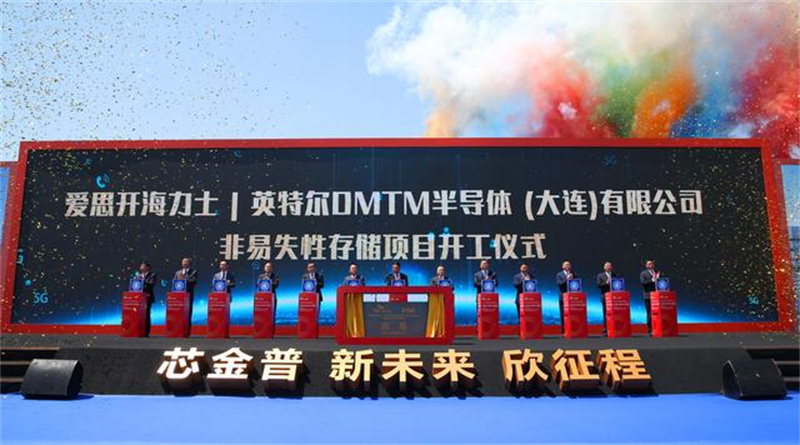As of April 11, SK Hynix has officially initiated the restructuring of its factory and related assets in Dalian, China, following the successful completion of its acquisition of Intel's NAND business. The $1.9 billion deal, finalized on March 27, 2023, rebranded Intel's NAND operations as Solidigm. However, the construction of a second NAND wafer plant in Dalian, initially planned over three years ago, remains stalled. This delay is widely attributed to the ongoing uncertainties in the NAND industry, as well as SK Hynix's conservative investment approach.
The acquisition process began in October 2020, when SK Hynix and Intel jointly announced the deal, in which SK Hynix agreed to purchase Intel's NAND SSD business, components, and wafer production facilities for $9 billion. While Intel retained control of its Optane business, the transaction gained approval from China's State Administration for Market Regulation in December 2021, along with clearance from other global regulators.
The acquisition unfolded in two phases. The first phase, completed by the end of 2021, saw SK Hynix purchase Intel's SSD operations and NAND production facilities in Dalian for $6.61 billion. This phase only involved the transfer of physical assets related to Intel's SSD business. Crucially, it did not include Intel's NAND intellectual property, R&D infrastructure, or key staff, limiting the potential for immediate technological collaboration. The second phase, which was concluded with the final $1.9 billion payment, gave SK Hynix full operational control of the NAND business, including intellectual property and workforce.
Despite the full acquisition, SK Hynix's plans to expand its operations in Dalian with a new wafer plant have been put on hold. A groundbreaking ceremony for this plant, intended to produce 3D NAND Flash memory chips, took place in May 2022, but the construction progress has been slow. As of April 2023, sources indicate that the facility's construction has not yet entered the final stages, with no discussions yet held with equipment suppliers regarding delivery or installation.
This delay is partially explained by the volatility in the NAND market. NAND prices dropped by 35% year-over-year in 2023, and the business margin for SK Hynix's NAND operations fell below 10%. Although a recovery is anticipated for the second half of 2024, market oversupply concerns persist. Domestic competition is also intensifying, especially with Yangtze Memory Technologies Co. (YMTC) ramping up its production of 128-layer 3D NAND chips.

Geopolitical tensions have further complicated SK Hynix's investment decisions. In October 2022, the United States imposed semiconductor export restrictions on China, though SK Hynix managed to secure a one-year exemption. In 2023, the company received "Validated End User" (VEU) status, which grants indefinite exemptions for existing production lines. However, new plant construction remains subject to export control limitations.
The delay in Dalian's second plant construction also has significant economic implications for the region. The project was expected to create around 5,000 jobs and boost related industries, but the postponement could result in a 0.3% decrease in the region's GDP growth in 2024.
Looking ahead, analysts believe that SK Hynix may reconsider the Dalian expansion if NAND prices recover to pre-2022 levels and if demand from the Chinese market significantly increases. However, for now, the semiconductor industry is facing substantial challenges, and the future of SK Hynix's Dalian facility remains uncertain. The evolving dynamics of the NAND market, along with shifting geopolitical forces, will likely determine the timing and scope of future investments.
In summary, SK Hynix's delayed expansion in Dalian is emblematic of the broader challenges faced by the global semiconductor industry. Market cycles, geopolitical risks, and changing corporate strategies are reshaping the landscape, with key decisions increasingly driven by external uncertainties. For China, this delay presents both challenges and opportunities, underscoring the need to accelerate the development of a robust, self-sufficient domestic semiconductor industry.
+86 191 9627 2716
+86 181 7379 0595
8:30 a.m. to 5:30 p.m., Monday to Friday
